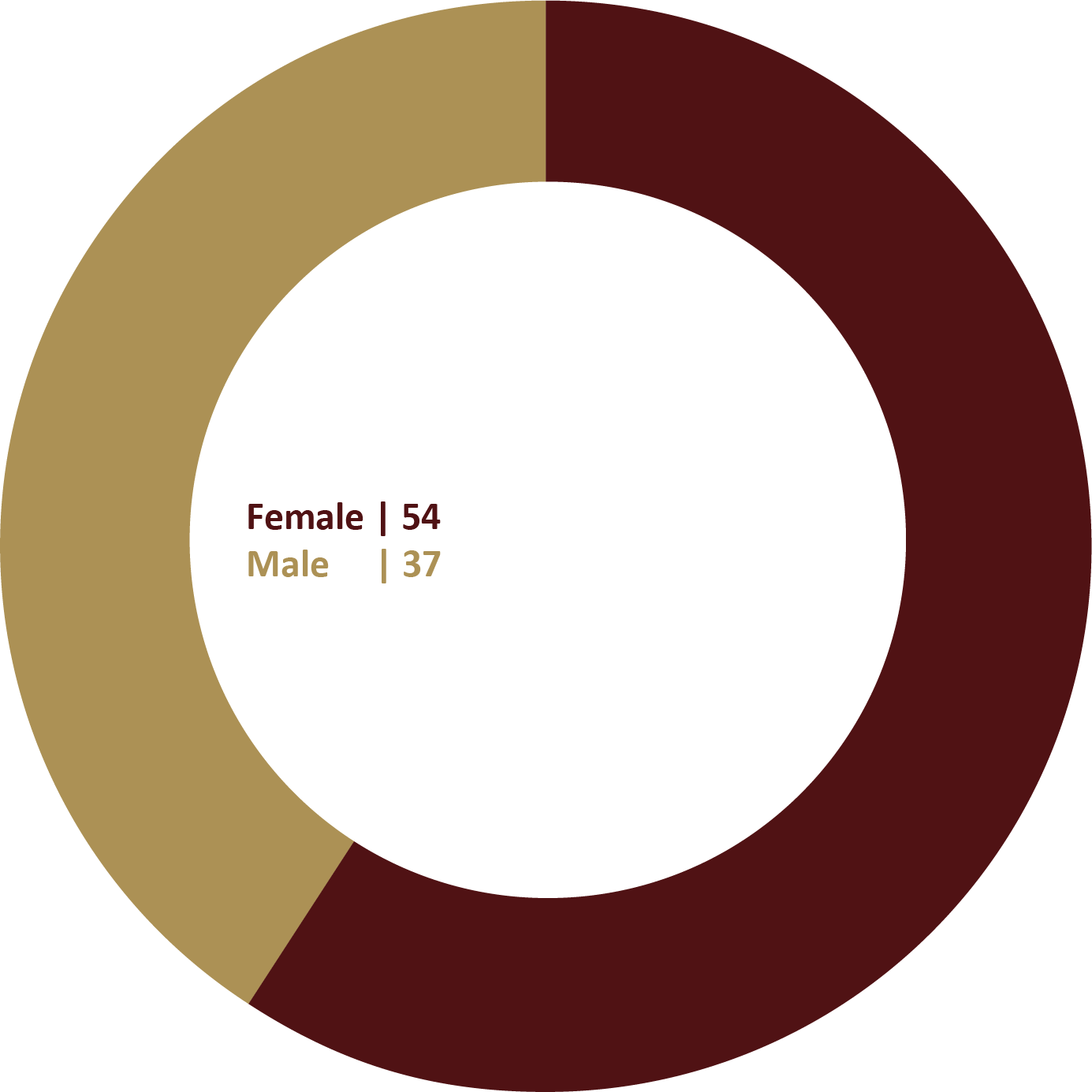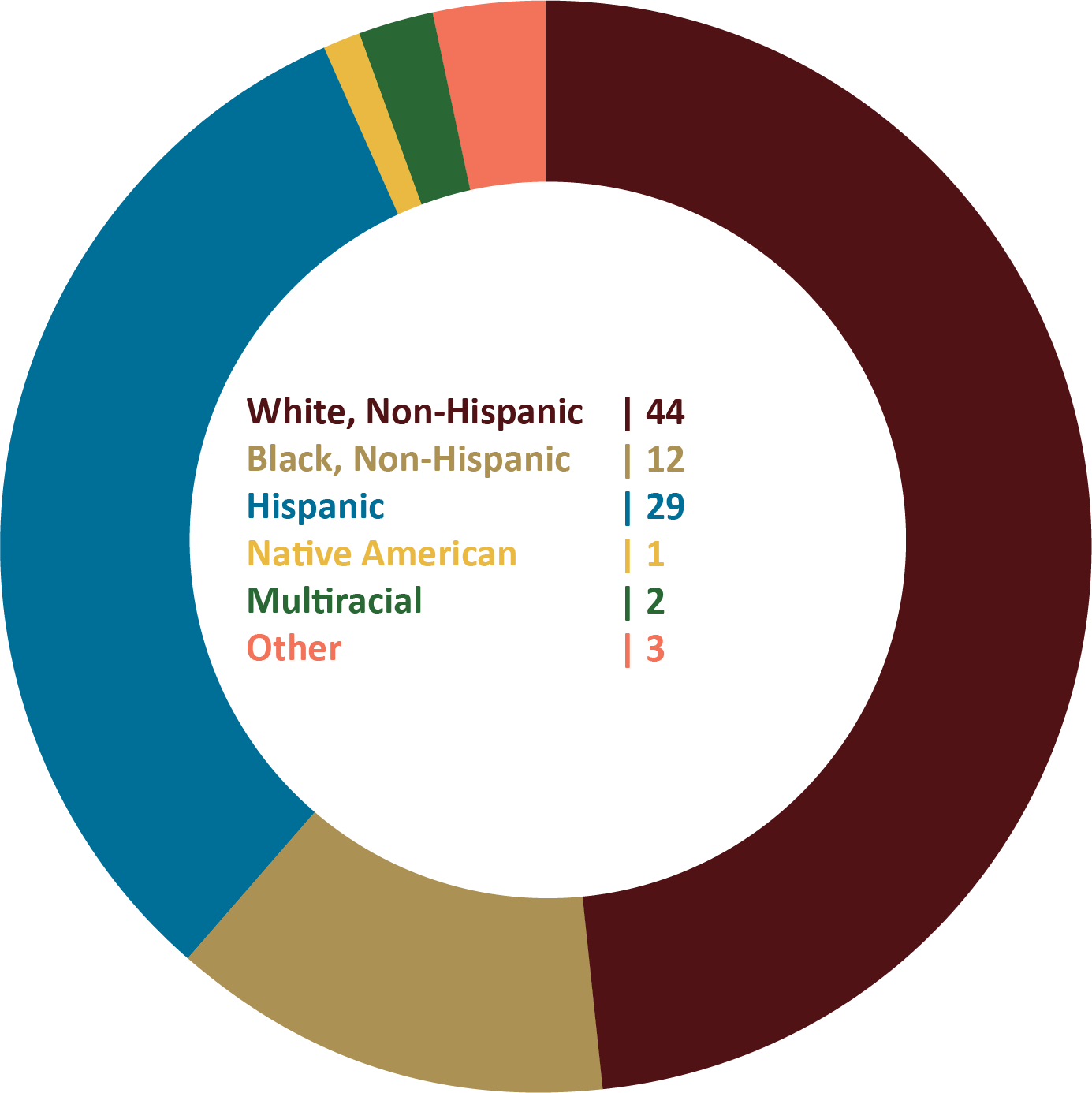Ninety-one MPA students were enrolled in the year 2021. This cohort consisted of 32% Hispanic/Latino students, 13% Black, non-Hispanic students, 48% White, non-Hispanic students and 7% from other ethnicities. Fifty-nine percent of the 2021 students were female. Apart from a strong commitment to recruit and retain a diverse student body, the Texas State MPA program uses a multi-pronged approach to promote a climate of diversity, inclusivity, and accessibility.
Over the years, from a scholarship standpoint, our students and faculty have worked on research projects that address these issues. MPA Alumna Melissa Bell’s applied research project “Toward Equal Access: A Model for Lay Advocacy Programs That Serve People who are Deaf or Hard of Hearing” assessed advocacy efforts for the deaf and hard of hearing in 38 US states. MPA alumna Jennifer Whitcomb is an experienced chief administrator for nonprofit organizations funded by federal, state, and local government appropriations and grants. Her applied research project “What Mental Health Providers in Dallas, Fort Worth, Houston, Austin, San Antonio and El Paso in the state of Texas are Doing to Accommodate Deaf and Hard of Hearing Individuals” looked at municipal level efforts to help this population. Kaylee Lawrence’s applied research project “Utilizing a Cultural Wealth Framework to Examine First-Generation Resources Available at Public Universities in Texas” described and assessed higher education resources for first-generation students.
Dr. Shields is co-editor of the forthcoming Handbook on Gender and Public Administration which features a chapter authored by her and MPA alums Ashely Wayman and Samantha Alexander entitled “Women in Texas local government: the road to city manager”. This chapter used combined results from two applied research projects to examine pathways and roadblocks to women’s ascent to the position of city manager. Dr. Shields authored another chapter, “The origins of the settlement model of public administration: stories of women pioneers”. The Handbook on Gender and Public Administration book also features a chapter by Dr. Rangarajan, and political science alum Mark Lottman entitled “Trends in International scholarship on gender and public personnel administration (2008-2019)”. Dr. Thomas Longoria’s 2014 work Are we all equal at death?: Death competence in municipal cemetery management in his words “reviews the cultural and social equity aspects of the consumption of cemetery services and develops tools to take into account social equity and cultural concerns for public sector cemetery managers”. Drs. Longoria and Rangarajan’s 2015 article on cultural competence, “Measuring Public Manager Cultural Competence: The Influence of Public Service”, developed and tested an instrument to measure cultural competence.
Our faculty have been active in the conference circuit presenting papers on such topics. Dr. Shields’s paper “The U.S. Sanitary Commission: Recovering Women’s Leadership, Management and Compassion During the Civil War” was presented at the 2020 national conference of the American Society for Public Administration. She also presented a paper in 2019 entitled “Women’s historic public engagement: Finding public administration in the peace and suffrage movements” at the National Academy of Public Administration’s Fall Meeting in Arlington, Virginia. In the past, Dr. Patricia Shields has represented our program at the Executive Women in Texas Government Conference to understand the working climate for female administrators in the state. Our faculty also participate in the Conference of Minority Public Administrators and in ASPA’s Section for Women in Public Administration. Dr. Rangarajan is on the board of the South Asia Section for Public Administration, a newly initiated sub-section of the American Society for Public Administration.
Other initiatives include faculty participation in the “Allies Training” program offered by the university, which helps “participants with information and resources that will help eliminate myths, misconceptions, and stereotypes often associated with LGBTQIA persons”. Our students engage in the Women Leading Government Leadership Institute and network with women leaders in government. Dr. Longoria teaches in the Latino/Latina studies program. He is also a member of the Diversity and Gender Studies Advisory Council.
To introduce students to diverse public administrators our Lunch & Learn speaker series and the Department of Political Science’s Discourse in Democracy speaker series bring in experts of varied cultural, racial, ethnic, experiential, professional and geographic backgrounds such that our students get exposure to diverse perspectives. The MPA program also benefits from counsel provided by a diverse advisory board on programmatic and curricular initiatives.
Diversity | At a Glance
Information Reflected: 2021




